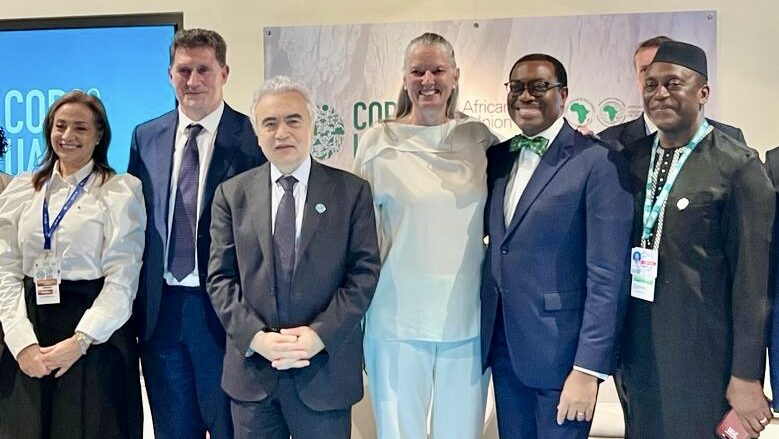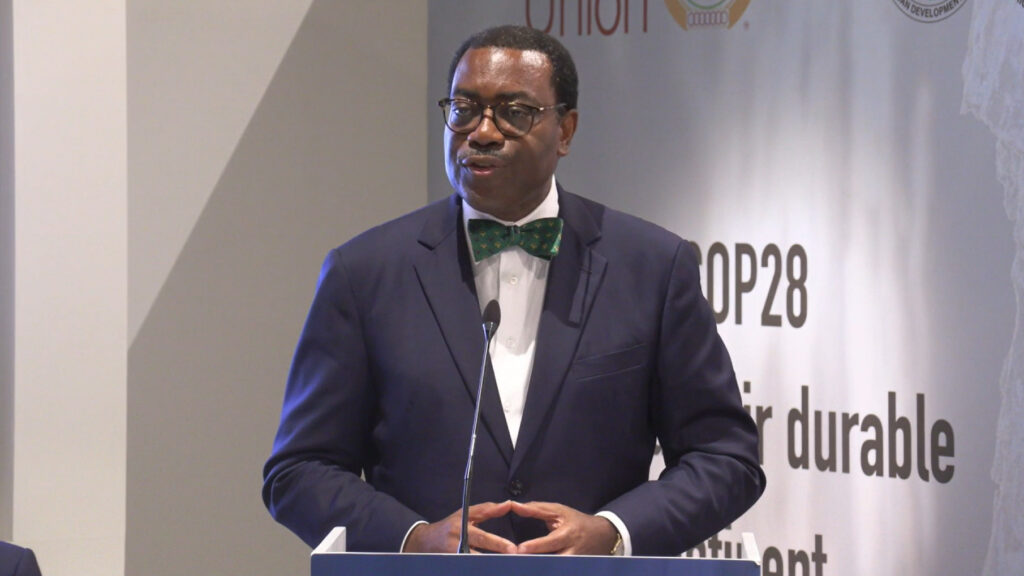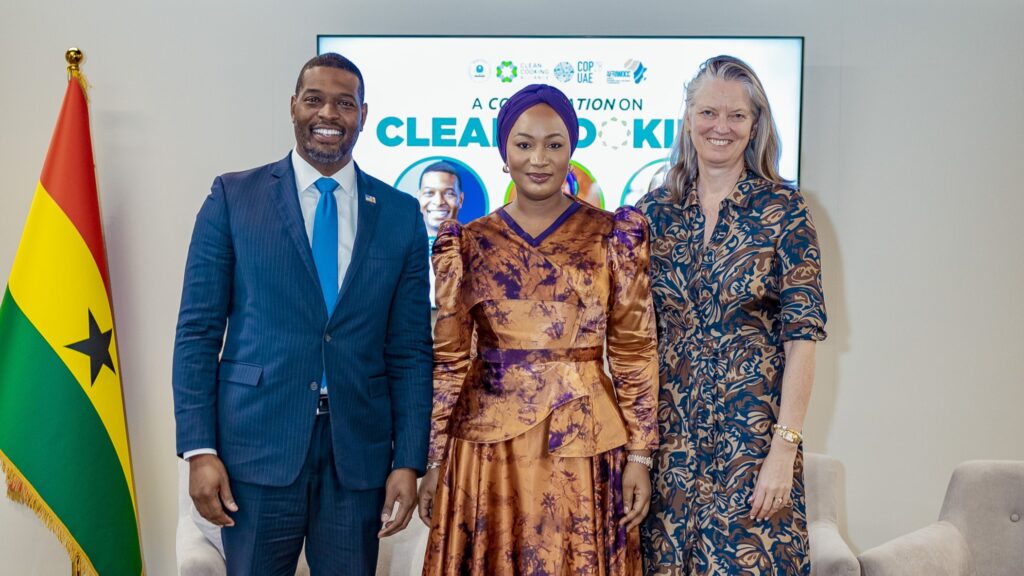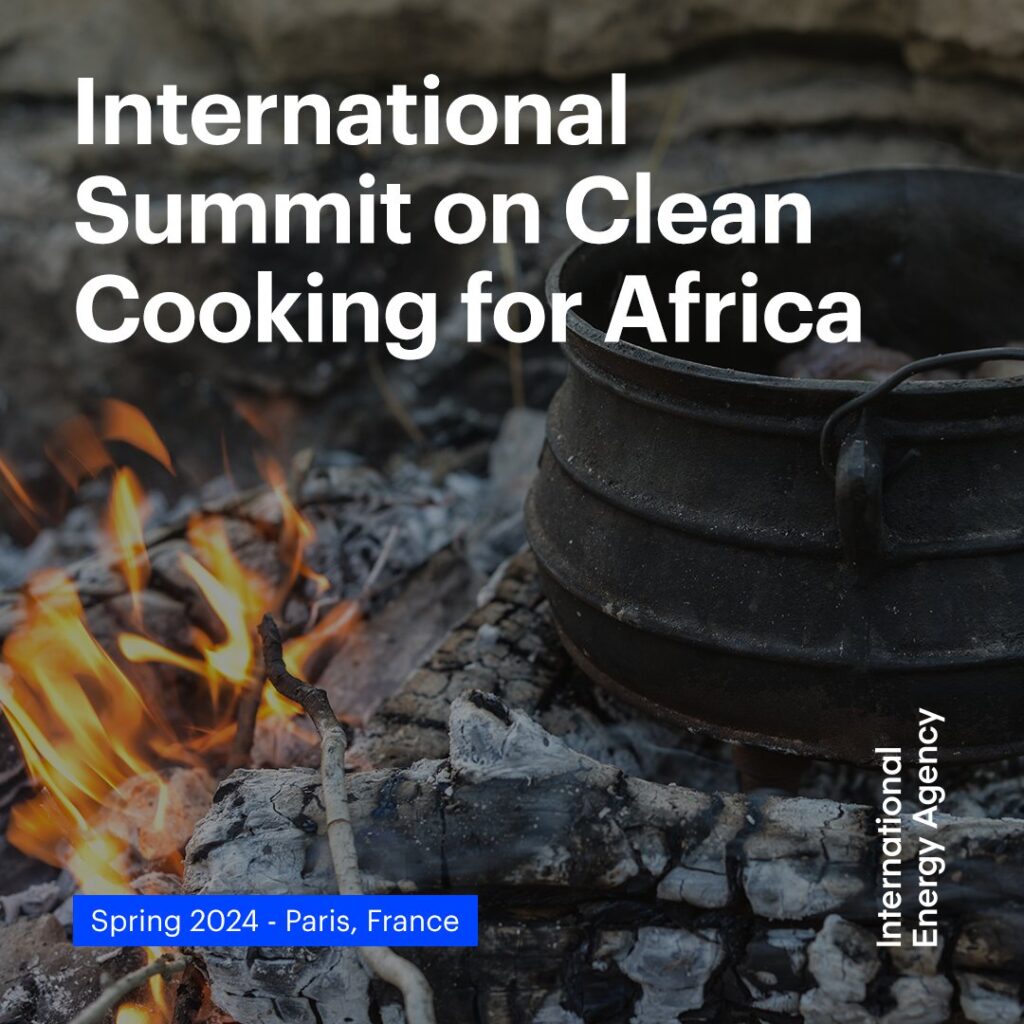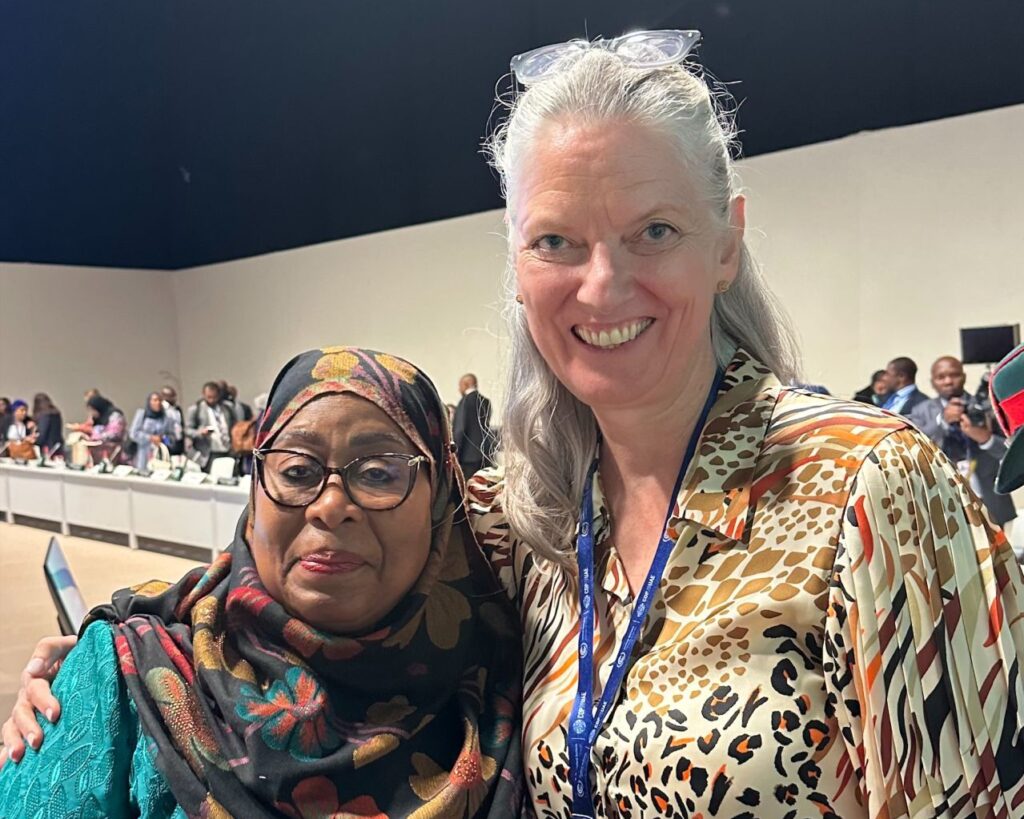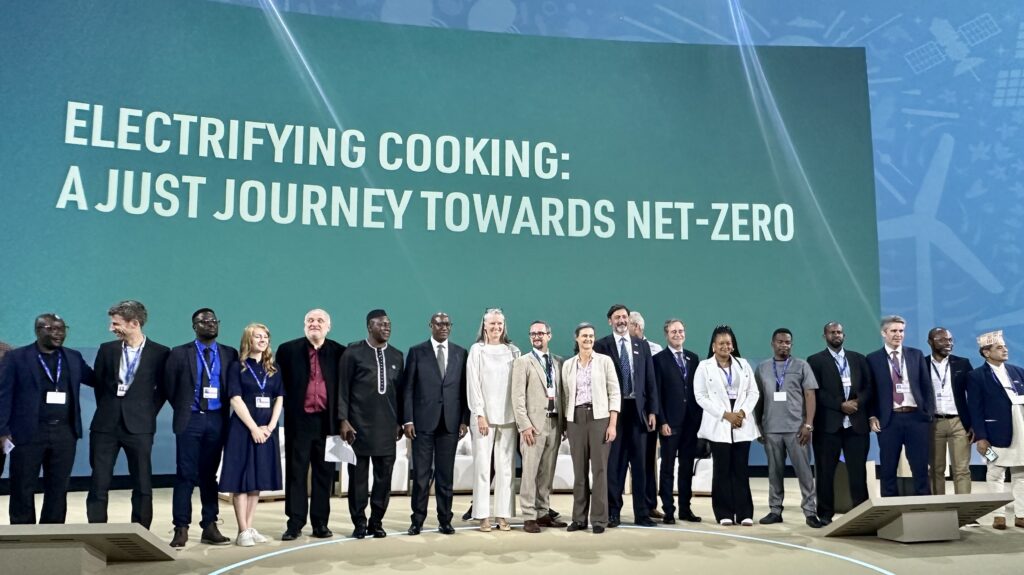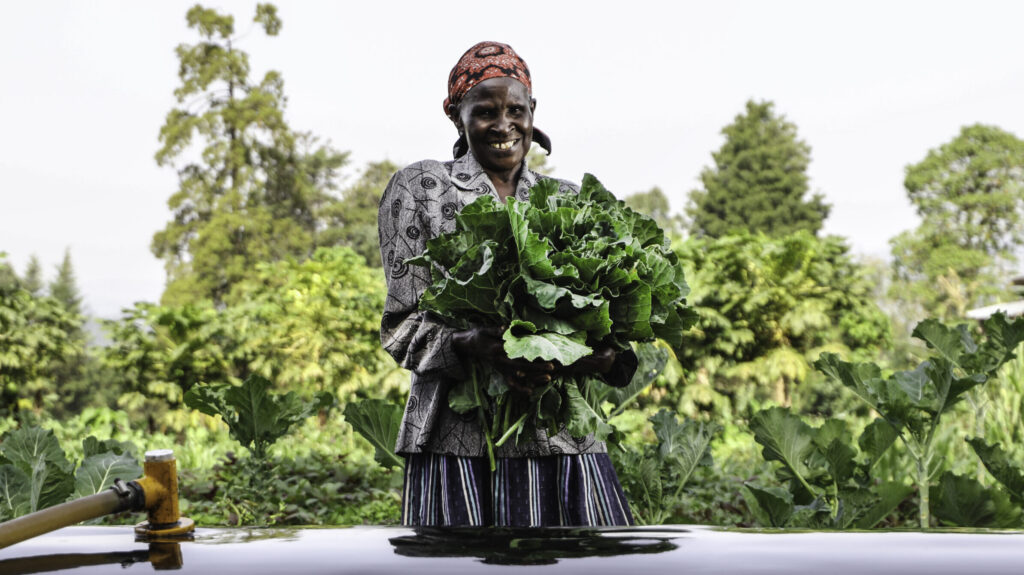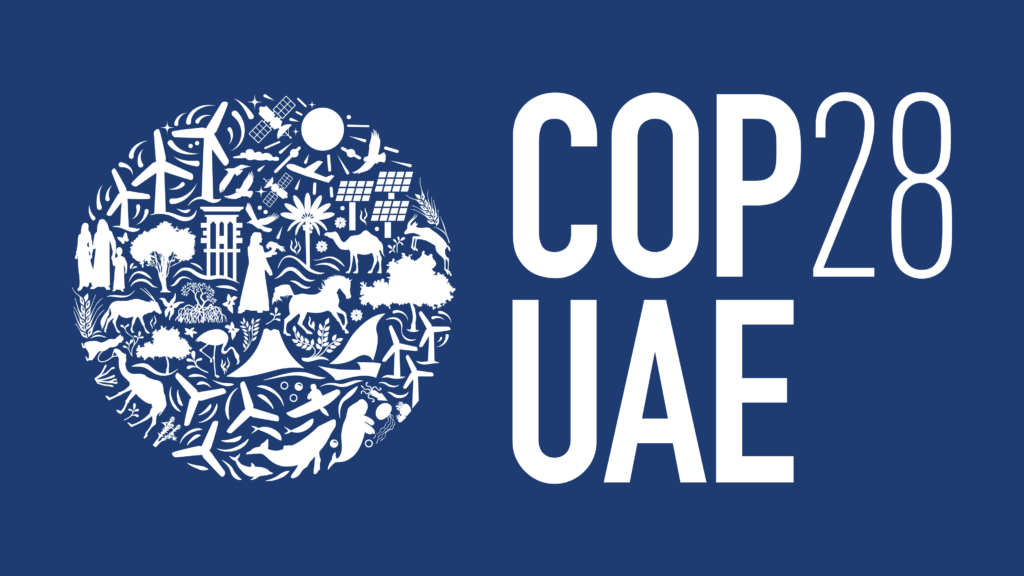Clean Cooking Alliance and Partners Prioritize Clean Cooking at COP28
Clean cooking was a prominent topic at the 28th United Nations Climate Change Conference (COP28) in Dubai. The Clean Cooking Alliance (CCA) and partners ensured that clean cooking was at the forefront of discussions around climate change, environmental sustainability, carbon finance, investment, gender equality, food systems, and sustainable cities.
Just a few of the many highlights from COP28 include:
CCA, the African Development Bank (AfDB), and the International Energy Agency (IEA) joined forces to help African governments deliver clean cooking for all. The new African Clean Cooking Consortium will address the actions required to achieve universal access to clean cooking in Africa, including country-level planning, establishing Delivery Units, developing country programs, and catalyzing investment.
Dymphna van der Lans, CEO, CCA: “I stand heartened that clean cooking is now one of the foremost climate and energy issues in Africa, and this year at COP28.”
The AfDB announced it will allocate up to 20% of its approved annual lending for energy toward clean cooking solutions. The Bank’s contribution will generate $2 billion for clean cooking over the next 10 years.
Dr. Akinwumi Adesina, President, AfDB: “Providing access to clean cooking is clearly doable in Africa. Let us prioritize saving the lives of women and children; let us make it easier for women to cook in dignity and safety. Clean cooking will save forests, climate, and lives of women and children.”
CCA CEO Dymphna van der Lans joined Second Lady of Ghana H.E. Samira Bawumia and U.S. Environmental Protection Agency (EPA) Administrator Michael Regan for “A Conversation on Clean Cooking.” The session covered the severe consequences of billions of people still lacking access to clean cooking solutions and outlined tangible steps to increase access globally, including through national leadership and by unlocking further investment.
Michael Regan, Administrator, U.S. EPA: “Unlike many issues, [clean cooking] is one that is solvable. It requires a little bit of coordination, a little bit of sharing of information, but more importantly, it requires that we really leverage existing technologies that can provide relief overnight if provided in the right way.”
IEA and CCA announced they will host a high-level International Summit on Clean Cooking in Africa, to be held in Paris, France, in the spring of 2024.
The African Women Clean Cooking Support Programme was launched by President of the United Republic of Tanzania H.E. Samia Suluhu Hassan to elevate women in climate conversations. At the event, in which CCA CEO Dymphna van der Lans was a speaker, world leaders committed to providing clean cooking energy to nearly one billion people in Africa by 2032.
H.E. Samia Suluhu Hassan, President, United Republic of Tanzania: “We call on the private sector to establish a commercial supply chain for clean cooking alternatives, including improved stoves and facilitating access to electricity in rural areas.”
The Global Electric Cooking Coalition (GeCCo) was launched by a coalition of partners, including Sustainable Energy for All, The Global Energy Alliance for People and Planet, the Modern Energy Cooking Services Programme, and Endev – who committed $10 million in funding toward GeCCo. CCA is proud to be a partner of GeCCo to promote the transition to electric cooking.
Damilola Ogunbiyi, CEO, Sustainable Energy for All: “Cooking with electricity offers a promising, scalable, and sustainable alternative – and this is why we are fully behind the Global Electric Cooking Coalition.”
CCA released a new report “Clean Cooking as a Catalyst for Sustainable Food Systems,” which sheds light on the key role that clean cooking plays in transforming the food system by mitigating climate change and environmental degradation, supporting restoration and climate-smart agriculture, building resilience in agricultural communities, and improving nutrition and food security.
Jillene Connors Belopolsky, Chief of Staff and External Affairs, CCA: “The findings in our new report underscore the pivotal role clean cooking plays in transforming our food systems. It is a clarion call for collective action, urging governments, investors, and corporations to recognize clean cooking as a linchpin for resilient, inclusive, and sustainable global food systems.”
Joaquin Lozano, Regional Director, Latin America and Caribbean, CGIAR: “A holistic approach is crucial to address the challenges faced and create more sustainable and inclusive food systems. It is urgent to invest in solutions to move towards cleaner and more accessible cooking.”
CCA and ICLEI Africa unveiled the report “The Future of Africa’s Sustainable Cities: Why Clean Cooking Matters,” which highlights the critical role that clean cooking must play in ensuring sustainable and equitable urban growth, with a particular focus on the fast-growing cities of sub-Saharan Africa.
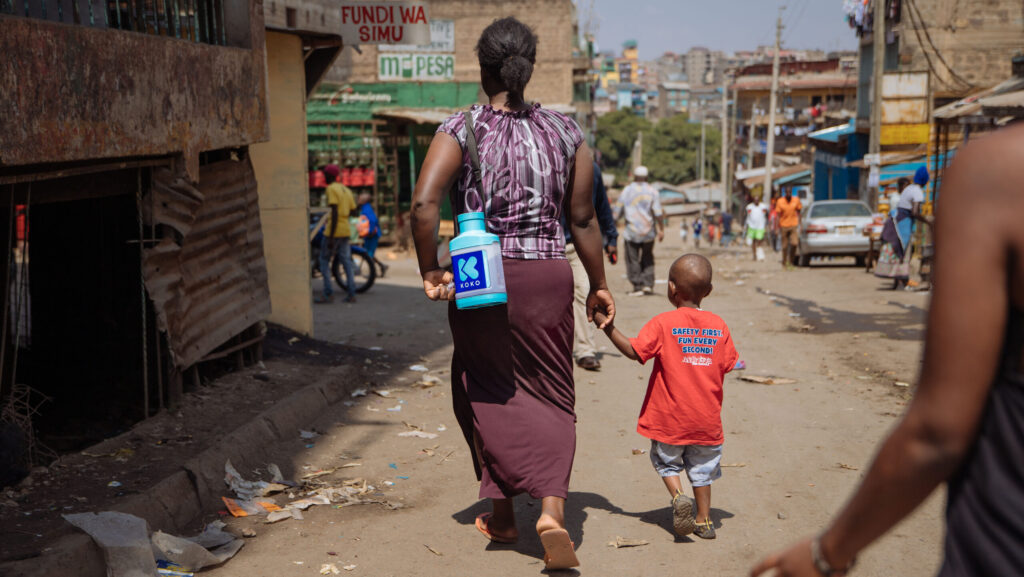 © Peter Irungu / Clean Cooking Alliance
© Peter Irungu / Clean Cooking Alliance
Yvonne Aki-Sawyerr OBE, Mayor of Freetown, Sierra Leone: “This report serves as a compass, guiding us towards a future where every African city can boast of accessible, clean, and efficient cooking solutions.
Partners from across the clean cooking ecosystem announced important partnerships and investments, including:
- AfDB President Dr. Akinwumi Adesina and IEA Executive Director Fatih Birol published an op-ed in Fortune, highlighting that clean cooking access in Africa is a critical health, gender, and climate issue.
- Africa Go Green Fund and BURN Manufacturing announced a $10 million project finance agreement to fund the distribution of clean cookstoves to households in Mozambique, Nigeria, and the Democratic Republic of Congo.
- Norway announced that it is joining the Modern Cooking Facility for Africa to support the program’s continued expansion and the development of clean cooking markets in seven sub-Saharan African countries. The initial Norwegian contribution will be over US$18 million.
- The Government of Nepal, CCA, and other partners announced an innovative project selling affordable electric cookstoves to Nepalese households in Madhesh Province.
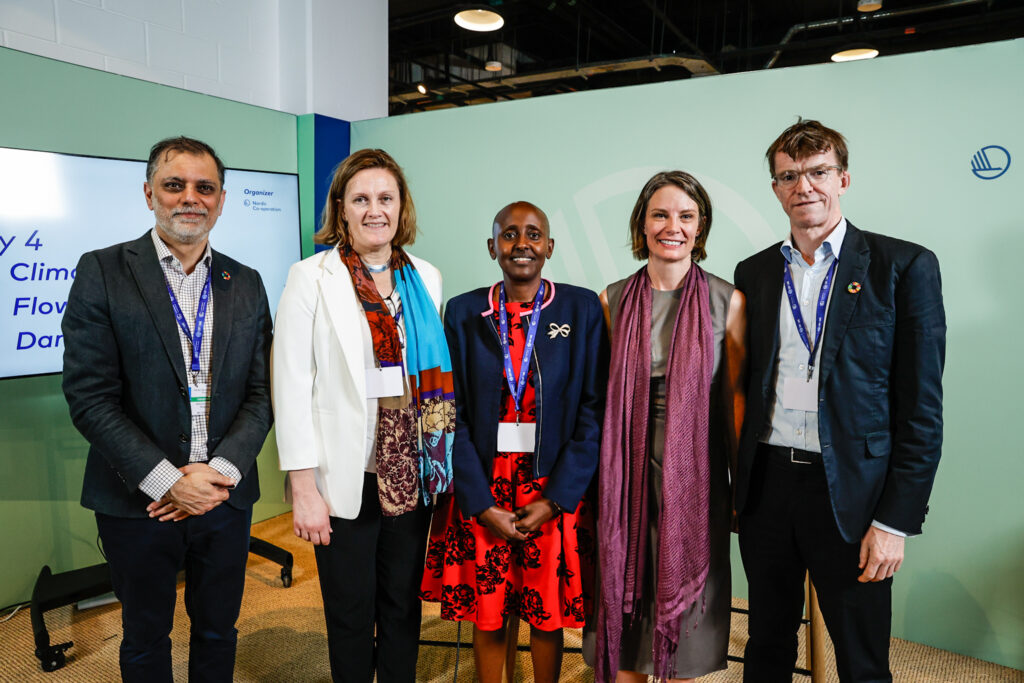 © Joel Sheakoski for MCFA
© Joel Sheakoski for MCFA
Ash Sharma, Vice President of Nefco and Head of the Modern Cooking Facility for Africa (MCFA): “We are very pleased to welcome Norway, one of Nefco’s owners, as a new donor to the MCFA programme. Norad’s contribution will allow us to accelerate the green transition in the clean cooking space and further demonstrate viable business models for affordable, high-quality and energy-efficient solutions.”
CCA tracked more clean cooking events at COP28 than at any previous COP. To view the list, click here.

